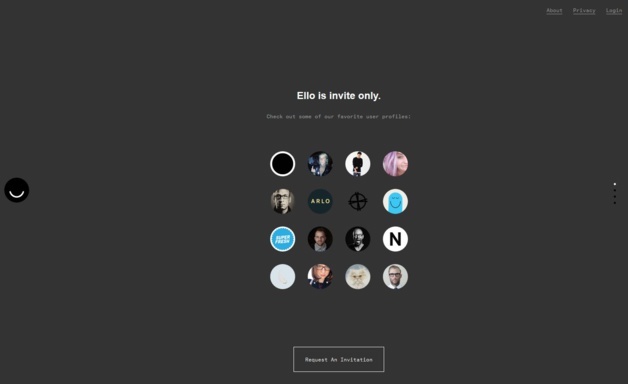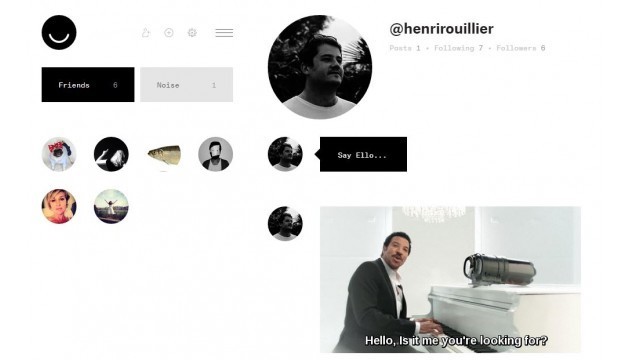
Credit DR
“Your social network is owned by advertisers. Every post you share, every friend you make and every link you follow is tracked, recorded and converted into data. Advertisers buy your data so they can show you more ads. You are the product that’s bought and sold.”
This is how the creators’ manifesto of the ambitious social network Ello begins. Born in March, the social network was created by both artists and software developers. The manifesto is particularly explicit; born out of frustration of liberal social networks such as Facebook, Ello’s founders have been nicknamed “the anti-Facebooks”.
Their declaration of principles is a call back to what most Facebook users are aware of; that their data is stored and made profitable to advertisers. Its users’ level of distrust is now higher than ever and puts the largest social network to a greater risk of jeopardy as more and more have deserted the internet platform (5.4% fewer users in four years).
“Simple, beautiful & ad-free”

“We believe there is a better way. We believe in audacity. We believe in beauty, simplicity and transparency. We believe that the people who make things and the people who use them should be in partnership. We believe a social network can be a tool for empowerment. Not a tool to deceive, coerce and manipulate — but a place to connect, create and celebrate life. You are not a product.”
Where Facebook has made mistakes, Ello tries not to repeat them. Established not on advertising revenue but solely on donations, the social network wants to showcase its selflessness. At first sight, Ello seems philanthropic. However, it is not accessible to all. In order to register on the website, you need to be invited by other members who may only send invites to twenty contacts.
On your first visit, the social platform is confusing. With a minimalist and uncluttered look, the social network looks slightly like its brother Twitter. Certain features such as the principle of “followers”, “following”, profiles and “walls”, comments and photos were kept… In short, no major change was planned for this umpteenth social network.
Does this Social Network Have a Future ?
Despite being in existence for six months already, Ello is actually at its initial stage (in the form of a “test” version) and is still under construction. Aiming to be private, the social network has known a very different fate. With more than 35,000 requests to register per hour, it can claim to rival Facebook, Ello is definitely a strong contender.
If this social network is crowded of new subscribers, it can also count on the support of the LGBT community. Indeed, a couple weeks ago an American drag queen was forbidden to use a pen name on Facebook instead of his real name. Right after the event, Ello was in a hurry to remind its users that it accepted all sorts of pen names. The negative impression created by Facebook resulted in a massive leak from one network to the other.
Nevertheless, even though the new social network proposes a pleasing prototype, some are disillusioned right at registration. “Too public profiles” for some or “not so avant-gardist” for others, the race to confidentiality advocated by Ello risks to stop in no time. During a recent interview of Paul Budnitz (link to the website here), the site’s inventor declared that “advertising is the devil”; things already turned around against him. Further controversy was stirred up by the announcement of FreshTracks Capital last March, which claimed to hold the information that the start-up had been financed by “Venture Capital” for a total of $435,000; the founders refrained from denying the declaration.
Nevertheless, resting on a financing system based on generosity and philanthropy has not proved to work each and every time. The most relevant example is without a doubt the case of WhatsApp, which managed to survive a certain time without advertisement before being acquired by… Facebook. Facebook, Twitter and Instagram… so many social networks which initially wanted to distinguish themselves in their debuts by wishing not to emit any advertisement.
As Ello’s CEO, Budnitz bashes advertisers despite the fact that he owns a luxury bicycle brand (link to website here). What we can be certain about here is that the creator of the project has more than one string to his bow. But can an “anti-ad” social network really last for years ? What if Ello’s “word of mouth” strategy was not worth much in the end ? The ball is in their court.





























